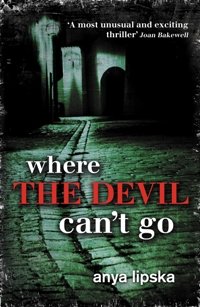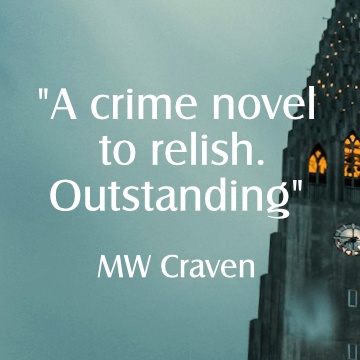
 Writtn by Anya Lipska — Where the Devil Can’t Go parallels the stories of two lead characters. Polish immigrant Janusz Kiszka builder-cum-PI has been a resident of London since the 1980s, long before the more recent economic exodus of Poles. Meanwhile rookie detective DC Natalie Kershaw is keen to earn her stripes and nail her first murder case.
Writtn by Anya Lipska — Where the Devil Can’t Go parallels the stories of two lead characters. Polish immigrant Janusz Kiszka builder-cum-PI has been a resident of London since the 1980s, long before the more recent economic exodus of Poles. Meanwhile rookie detective DC Natalie Kershaw is keen to earn her stripes and nail her first murder case.
The two cross paths while Januzs is investigating an AWOL waitress, and Kershaw a dead body in the Thames. When another body is discovered in an hotel room, the result of an overdose, Janusz finds himself on the wrong side of a drug gang. The plot takes you on a journey through the streets of London, and a trip to Gdansk, Poland. The mysterious twists and turns dig up Poland’s oppressed past, revealing the present political struggles of a former Iron Curtain nation finding its feet in the free market. It culminates in a showdown in a disused London warehouse near the Olympics site.
Even if you are not a born-and-bred Londoner, like I am, you will recognise the city described by the author in her debut novel. The book mixes notions seen in the much-exported TV show The Bill, and Brit crime flicks such as Lock, Stock and Two Smoking Barrels. With such a strong Polish contingent in the city it was only a matter of time before a Polish-London crime narrative made a break through. However while Lipska’s portrayal of her characters and the city are wholly convincing I felt I’d seen it before. Perhaps I am a jaded Londoner but I found this aspect of the book a little trite and hackneyed. This is a portrayal of London’s Poles, which is new, but the main and supporting characters are archetypal none the same.
The most enjoyable reading came in the discussion of the Solidarity movement, from Januzs’ point of view. Those old enough to remember will know it as the driving force for the change from one-party, Communist rule to democracy during the 80s. At the time Solidarity enjoyed the backing of the Catholic Church and Janusz’s humble priest continues to engage in the politics of their shared homeland, at a level that would be unthinkable for men of the cloth in Britain.
This part of the book is much more rewarding, and it becomes clear that it’s not just the British who are Euro-sceptic. Many old wounds still haven’t healed, and old alliances are just waiting to be rekindled. As the mystery unravels the threads are drawn together in a climax of treachery and treason.
Get past the clichéed portrayal of global London where people do what they can to make a living, where the low life and high life mix, and you will find an interesting book well worth reading. It’s currently an excellent buy on Kindle at £0.94, and you can read our interview with the author here.
Tadeusz Books
Kindle
£0.94
CFL rating: 4 Stars








